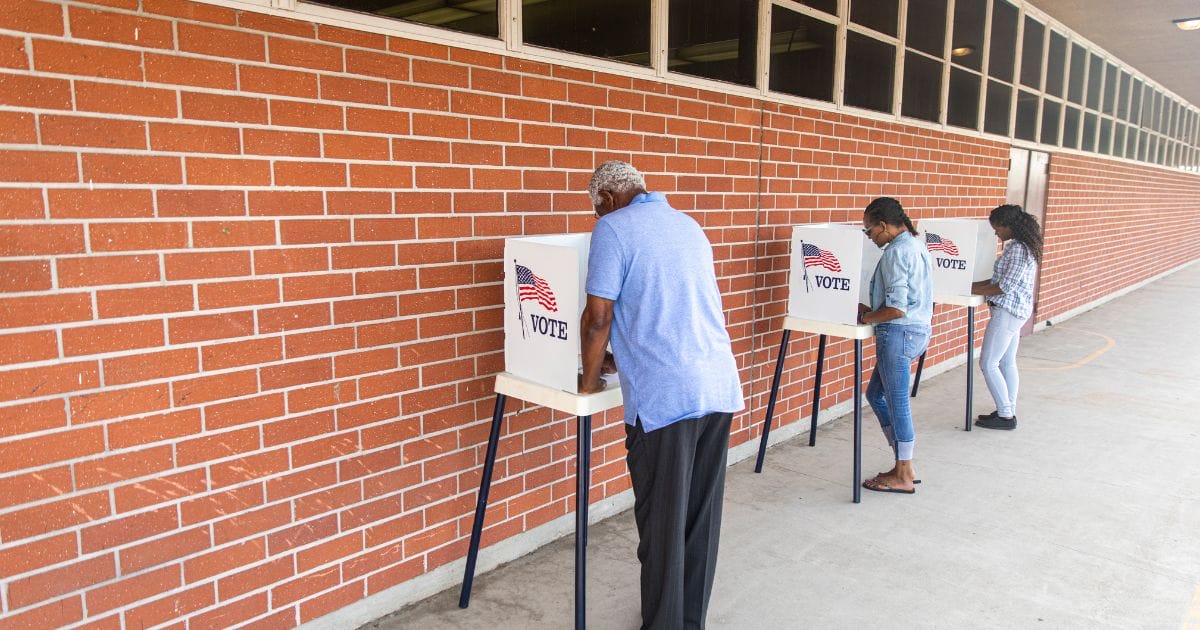Voters in 15 states and one U.S. territory made their electoral voices clear on Super Tuesday, delivering several key victories for Black candidates up and down the ballots.
Here’s a brief snapshot of some of those races and takeaways gleaned from their respective primary elections on Tuesday night, for the culture.
5 Super Tuesday takeaways for the culture
While the nature of elections is that not everybody can win, even in defeat there are potential gains to be had, as shown in the East Bay Area, where a Congressional dynasty is expected to be continued as a significant part of that legacy comes to a halt.
Lateefah Simon moves ‘one step closer’ to winning Barbara Lee’s seat
In northern California, Lateefah Simon declared victory in the Democratic primary for California’s 12th Congressional District, which has been represented by Barbara Lee since 1998.
“I’m beyond humbled to be one step closer to following in the outsized footsteps of Congresswoman Barbara Lee and representing this magnificent East Bay community in the halls of Congress,” Simon, a Bay Area Rapid Transit official who was endorsed by Lee, said before continuing later: “I’m so proud of the momentum of this campaign and I’m ready to keep working every day toward a victory in November.”
Will we have a Black woman senator in 2025?
On the flip side of the Bay Area political coin, Congressional veteran Rep. Barbara Lee lost her U.S. Senate bid in California as Democratic U.S. Rep. Adam Schiff and former MLB player Steve Garvey, a MAGA Republican candidate, advanced to the general election.
With Lee’s loss, the focus returns to the topic of racial diversity within the U.S. Senate, where just three Black women have served and 12 Black people overall. One of those Black people is LaPhonza Butler, the newly appointed California Senator whose briefly held seat will go to the winner of the race in which Lee just lost.
Another way to look at it is that the elimination of Lee as a candidate leaves just two other Black people — also women — running in U.S. Senate races. Among them is U.S. Rep. Lisa Blunt Rochester, seeking to become the first Black Senator from Delaware. Previous polling has indicated that she is well on that course, which suggests the next U.S. Senate will include a Black woman for the first time since Kamala Harris gave up her seat to become vice president of the United States in 2021.
MAGA Mark Robinson won
North Carolina Lieutenant Governor Mark Robinson — you know, the Donald Trump-endorsed candidate who infamously said Black people “owe” a debt of reparations to society for slavery — emerged victorious in the state’s Republican gubernatorial primary. If he wins in November, Robinson, 55, will become just the fourth Black person ever elected governor in the history of the U.S.
Equally notable as it is ironic, the Black man would also be the latest governor to embrace Donald Trump’s racist MAGA movement.
Sheila Jackson Lee won months after losing
Texas Rep. Sheila Jackson Lee is the living embodiment of bouncing back.
Months after getting trounced in the mayoral runoff election in Houston, the 14-term incumbent Congresswoman said she felt “compelled” to run to keep her seat on Capitol Hill. On Tuesday night, that compulsion was more than validated as Jackson Lee was quickly projected as the winner in a race that included her former Congressional intern as a rival candidate.
Immense gratitude to each voter, volunteer, campaign staff member, and supporter who stood with us. Thanks to you, we can continue to deliver for the 18th Congressional District and the city of Houston. pic.twitter.com/BxIO9PZBGH
— Sheila Jackson Lee (@SJacksonLee) March 6, 2024
Colin Allred vs. Ted Cruz
In a Texas race that’s seemingly flying under the popular political radar, U.S. Rep. Colin Allred dominated the Democratic U.S. Senate primary to secure his party’s nomination and square off against Republican incumbent Se. Ted Cruz, whose reputation of cowardly white supremacist-informed greed precedes itself.
Allred commanded more than 60% of the vote, while Cruz won nearly 90%, putting the two candidates on a collision course for November.
While Cruz has incumbency on his side, Allred may have something more valuable — money. He raised more than $6 million in the two months since he announced his campaign and, according to the Texas Tribune, he “led in fundraising across the field in both parties” with more than $21 million.
This article originally appeared on NewsOne.






